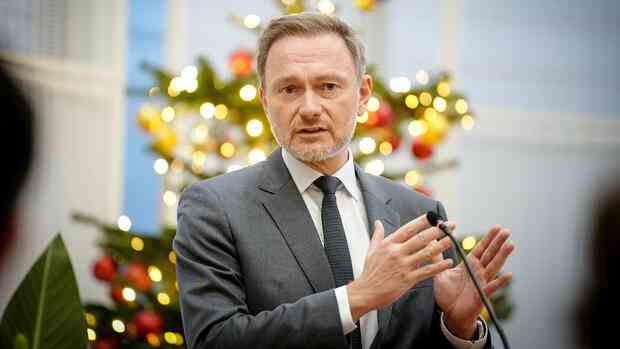Even if liberal economists and business representatives welcome this position, there is growing concern among some that compliance with the rule could be at the expense of necessary investments. “It is important that we quickly reintroduce the debt brake to stabilize public budgets and discipline budgetary policy,” says Bertram Brossardt, Managing Director of the Bavarian Business Association (VBW). “The lack of alignment of the debt brake to future investments is an untenable situation.”
The influential trade association has presented a proposal for a reform, a “debt brake plus”, as it calls it. Brossardt: “The debt brake plus adheres to budgetary discipline and at the same time opens up the possibility for the federal and state governments to finance investments in the future through loans.”
In the concept paper, the trade association proposes that the state be allowed to finance certain investments with loans. This should be combined with repayment plans based on the useful life of financed objects. “The bottom line is that debts are always matched by concrete values,” the paper says. The repayment is to be financed from current budgets.
Top jobs of the day
Find the best jobs now and
be notified by email.
It is undisputed that there is a great need for investment in Germany. This includes the classic infrastructure such as roads or local public transport, but also expenditure for the digital and climate-neutral transformation. In a recent study, the Leibniz Center for European Economic Research (ZEW) put the uncovered investment needs of the state at around 60 billion euros annually over a period of ten years.
Uncontrolled growth of special funds
In order to finance investments and at the same time comply with the debt brake from 2023, the traffic light coalition uses a trick: it outsources many tasks to shadow budgets that are not subject to the debt brake.
>> Read here: How Germany can invest 600 billion euros without taking on debt
For example, the federal government created a special fund of 100 billion euros for the equipment of the Bundeswehr, and it shifted unused corona emergency loans to the climate and transformation fund (KTF), from which investments are to be financed in the coming years.
“The debt brake allows legally independent special budgets and thus opens up the latitude that the Federal Minister of Finance makes full use of,” says Michael Hüther, head of the employer-related Institute of German Economics (IW). “Financing the transformation investments of the state with credit is well justified.”
On the one hand, a generation cannot achieve what is associated with climate neutrality as a goal. On the other hand, according to Hüther, it would also be unfair not to involve future generations in financing investments that are of great benefit to them.
So that the federal government can comply with the debt brake, it uses a trick: shadow budgets.
(Photo: dpa)
Nevertheless, Hüther also considers the “uncontrolled growth” of the special funds to be a “problem”. “A little more clarity and objectivity in justifying the state’s loan financing would be helpful instead of constantly emphasizing that the debt brake applies,” says the economist.
The Association of Bavarian Business also refers to the Federal Court of Auditors’ criticism of the shadow budgets and comes to the conclusion: “This is not sufficiently resilient as a long-term path.” In addition, the Climate and Transformation Fund ensures financial leeway for the federal government, but not for the states. “New leeway must be opened up here that is compatible with an efficient debt brake even without exceptional circumstances,” writes the VBW, referring to its concept of the Debt Brake Plus.
Other states would spend noticeably more money on important tasks such as education or public investments. “This is unacceptable for our location in the long term,” said the trade association.
>> Read here: Commentary: The slow death of the debt brake
The paper by the Ministry of Finance emphasizes that the climate and transformation fund has at least 175 billion euros available for the years 2023 to 2026. In addition to public investments, private investments are needed above all. Lindner wants to improve the framework for this. To this end, he had his experts compile ideas that can be found in the paper.
Ministry of Finance brings tax cut into play
Lindner’s officials strictly reject tax increases (“fiscal policy firewall”). Instead, they propose relief, such as better depreciation options for companies to stimulate investment.
“In addition to the measures mentioned, a general reduction in the tariff for income and corporation tax is also an option,” the paper says. Alternatively, the complete abolition of the solidarity surcharge is conceivable.
>> Read here: Risk of state-owned companies – why a huge shadow debt state is emerging in Germany
The proposals from the specialist level are an internal basis for discussion, according to the Ministry of Finance. Lindner still had to decide which measures would be specifically proposed to the cabinet.
The paper contains many demands that are likely to cause a dispute in the traffic light coalition, including tax cuts and the continued operation of the three nuclear power plants beyond April 2023.
More: Seven graphics debunk the myth of the ruined state
